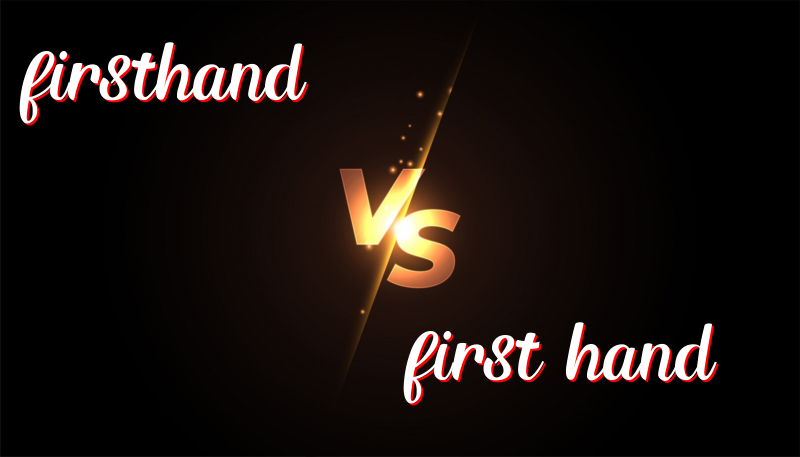When Hands-on Turns into Words-on: A Tale of Firsthand vs. First-hand
Difference Between “Firsthand” and “First-hand”
Sometimes, we have two words that seem the same but are written differently. “Firsthand” and “First-hand” are two of those words. Let’s look at how they are different and when to use each one.
History
Both “firsthand” and “first-hand” come from old words where “first” means number one or before all others, and “hand” means by a person or directly. Over time, people began to use them to talk about experiences or ways of getting information directly.
How to Use Them
“Firsthand”
“Firsthand” is an adjective or adverb. It is mostly used in American English. It means you get information or experience directly, not from other people or sources.
- Example 1: She got a firsthand look at how the city works.
- Example 2: I have firsthand knowledge of the event because I was there.
- Example 3: They heard the news firsthand from the reporter.
- Example 4: He experienced the adventure firsthand and shared it with us.
- Example 5: We saw the concert firsthand and it was amazing!
“First-hand”
“First-hand” is mostly used in British English. It is also an adjective or adverb. It has the same meaning as “firsthand” but is just a different way to write it.
- Example 1: She had a first-hand view of the parade.
- Example 2: He gained first-hand experience during his trip.
- Example 3: We learned first-hand about the culture by living there.
- Example 4: First-hand accounts of the event are important to the story.
- Example 5: His first-hand description made us feel like we were there.
Trick to Remember the Difference
If you are writing in American English, use “firsthand” as one word. If you prefer British English, you can write it as “first-hand” with a hyphen. Both mean the same thing, so it mostly depends on the style you are following.
Summary
Both “firsthand” and “first-hand” mean you know something because you saw or felt it yourself. “Firsthand” is more common in American English while “first-hand” is used in British English. Choose which one to use based on where you or your audience is from, but remember they have the same meaning.

Leave a Reply
You must be logged in to post a comment.